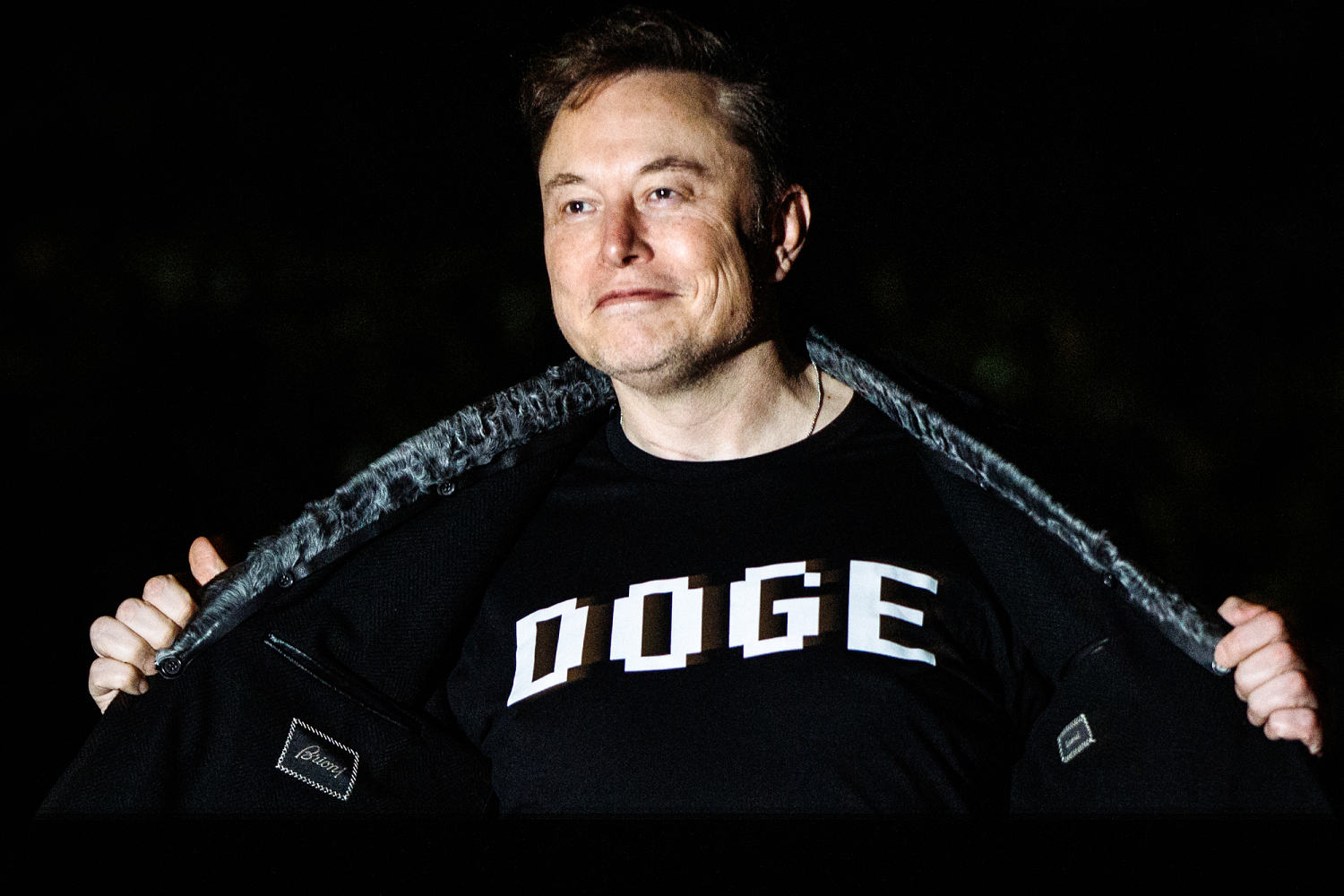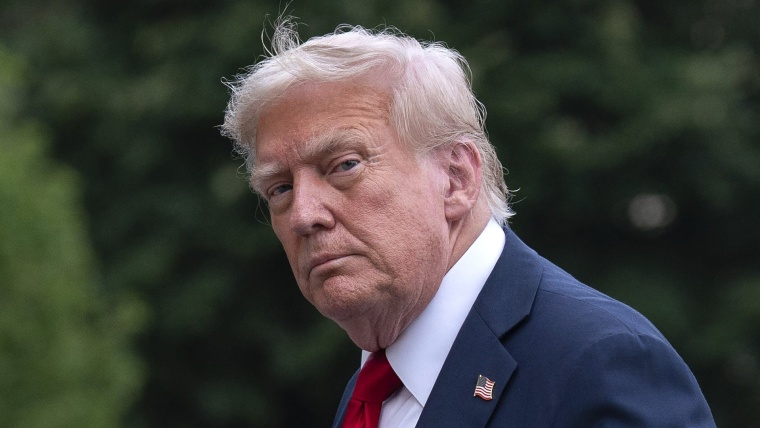State versions of DOGE take more modest approaches than Elon Musk’s shock-and-awe moves in Washington


States are continuing to roll out their own versions of the Department of Government Efficiency, the outside advisory commission led by tech billionaire Elon Musk that President Donald Trump tasked with cutting federal spending and staffing.
Many of the officials who launched the bodies, which take different forms in different states, say they’ve wanted to have the impact of Trump’s DOGE, with some explicitly comparing them to the federal commission.
But while Musk’s slash-and-burn approach has caused major disruptions in Washington and across the country, the more than 20 state-level DOGE organizations that have been rolled out since Trump’s federal launch have so far taken a far lighter touch.
For many states with such organizations, that’s a product of the fact that they don’t have the same layers of bureaucracy as the federal government, while for others, it’s due more to the fact that their DOGE-styled bodies are advisory in nature. Many of the state DOGE bodies are looking into state governments that have been under unified Republican control for multiple terms or even decades, unlike the federal government.
“It’s more modest,” said Abegail Cave, a spokesperson for Oklahoma Republican Gov. Kevin Stitt, who in February signed an executive order to create a “Division of Government Efficiency” dubbed DOGE-OK. His office said at the time that it was focused on eliminating wasteful government spending and improving efficiency.
“We don’t have the huge bureaucracies to cut that the federal government did,” Cave added. “There’s just not as much to be wildly aggressive about. You’re not gonna have a USAID.”
Even as Musk has signaled that his forceful role at DOGE will soon be ebbing, efforts are just ramping up in many of the states that have created agencies, committees, task forces, bills and other mechanisms to streamline government regulations or spending.
Texas joined that list most recently, after Gov. Greg Abbott, a Republican, signed a bill in April creating a permanent state agency — the Texas Regulatory Efficiency Office — dedicated to streamlining government and spending. The law doesn’t go into effect until Sept. 1, and his administration has said there is no timeline yet for when the new office will open.
At the bill-signing event, Abbott said Musk’s DOGE helped “crystallize” the framework for what the Texas agency would do — while also acknowledging that the version would, unlike the federal one, focus predominantly on slashing state government regulations, as part of a broader push to make Texas even friendlier to businesses.
That softer touch has largely been the case in other state-level DOGE apparatuses, as well.
In Oklahoma, Cave said that two months after its launch, one of the biggest savings DOGE-OK has made was a $200,000 cut after it identified the existence of “hundreds” of redundant fax machines across the state government.
Perhaps the one exception in which a state DOGE is pursuing matters more aggressively is in Florida, where the state’s organization, created via executive order by Republican Gov. Ron DeSantis in February, is actively reviewing grants and faculty research at public universities in the state, identifying prospective spending cuts and reforms in local governments and seeking to return “unnecessary federal grant funding” to Washington.
The version of DOGE launched by DeSantis, who has repeatedly taken aim at public higher education in Florida, has already begun requesting documents and information from public universities and colleges in the state, spokesperson Brian Wright said in an email.
The Florida State Department of Governmental Efficiency, Wright said, has also begun reviewing “the financial prudence” of all 67 counties and 411 municipalities in the state.
On the other hand, New Hampshire’s Commission on Government Efficiency, created in January via executive order from GOP Gov. Kelly Ayotte, has so far met a handful times to discuss cost-saving maneuvers such as selling state-owned property and reducing certain equipment purchases. The 15-member body, which comprises legislative leaders and local business leaders, can only submit recommendations to Ayotte.
Its members have been outspoken in distancing themselves from Musk and his approach.
“I’m not Elon Musk,” GOP former Gov. Craig Benson, a member of the commission, said at a recent meeting of the group. “We’re not trying to do things the same way.”
In Iowa, Republican Gov. Kim Reynolds has stated that her DOGE Task Force’s goals include reducing the cost of government and improving effectiveness and efficiency.
So far, the body has held only one meeting, and it isn’t scheduled to submit its recommendations to Reynolds’ office for five more months.
Iowa Democrats have nevertheless complained that the body is operating opaquely. Iowa state Rep. Megan Srinivas said on a call with reporters this week that the force is acting with “a lack of transparency around” any proposed changes in state government. A Reynolds spokesperson didn’t respond to questions about the task force.
In Missouri, a freshly formed Republican-led legislative committee, the Committee to Evaluate Efficiency in State Government, is reviewing at least 30 bills that propose modest changes to various state boards, state contracts and state payroll formulas.
And in Kansas, the Republican-controlled state Senate’s new Committee on Government Efficiency created a website on which residents could submit suggestions of where they wanted to see government waste cut.
It crashed following an explosion of submissions. The committee’s Republican vice chair, state Sen. Michael Murphy, admitted, “All we’re going to be able to do in most cases is have a recommendation.”
Meanwhile, in several other states with divided governments, Republican-led legislatures have since the start of the year launched state legislative DOGE committees. Those bodies wield even less power, since Democratic governors can block their efforts, but they have proven useful as platforms for investigations, messaging and more.
In Wisconsin, state Assembly Republicans launched a Government Operations, Accountability and Transparency Committee. Lawmakers quizzed state agency heads and the head of the state’s university system on spending and alleged waste at its first meeting in March.
A Republican member of the committee requested information from the state’s biggest cities and all 72 of its counties regarding diversity, equity and inclusion spending in local government. The chair, GOP state Rep. Amanda Nedweski, said that the body’s primary goal will be to make sure state government employees no longer work remotely.
Nedweski said that the initial burst of attention surrounding Trump’s DOGE certainly fueled the explosion of imitations in state capitals, including in Wisconsin, but that by nature, most state-level versions were going to have to operate more deliberately.
“Conceptually, the idea is something people want. Fiscal conservatism has become cool again,” she said in an interview. “Whether you like the federal DOGE or not, it’s getting a lot of attention because people want to save money and want to see if there’s waste somewhere — and that it’s being addressed and reduced.”
“At the state level,” Nedweski added, “we have restrictions — we cannot bulldoze into an agency and slash and burn, because we don’t have that authority.”
The committee, which has no counterpart in the state Senate, can only make recommendations to Gov. Tony Evers, a Democrat.
Republicans have this year launched legislative committees with similar dynamics and constraints in Arizona and North Carolina, which also have Democratic governors.
In Arizona, conservative lawmakers acknowledged that the path to DOGE-like reforms would have to come through legislation passed by both chambers and signed by Democratic Gov. Katie Hobbs. In North Carolina, the state House committee has not yet issued any recommendations, proposed cuts or crafted any legislation. But it’s not the only suggested way circulating to eliminate alleged waste.
Gov. Josh Stein, a Democrat, proposed in March a new “Impact Center,” housed in his Office of State Budget and Management that would oversee efforts to make government run efficiently.
However, he has said his approach would “use a scalpel, not a chainsaw.” The statement refers to an appearance by Musk at a conservative political conference in February, where he wielded a chainsaw to symbolize his government cuts.





